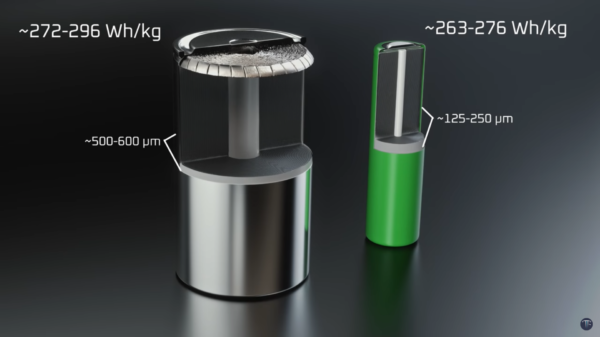
Tesla on Path to Cut Model Y 4680 Battery Costs in Half, Say Experts

Photo: The Limiting Factor
Implementing Tesla’s 4680 battery cell has been quite the process, but some experts say the end result could chop battery pack pricing by as much as half once it enters mass production.
Tesla could cut Model Y battery costs in half with the introduction of the 4680 battery cell, according to several sources familiar with the matter who spoke to Reuters.
The sources said that if all of Tesla’s plans pan out, the Model Y 4680 battery pack could cost just $5,000-$5,500 — or about half of the 2170 pack’s cost. However, the move to a new dry-coating manufacturing process will be integral in ensuring the cost reduction, and the sources say it will be difficult for Tesla will master this process by the end of the year as CEO Elon Musk has hoped in the past.
Tesla 4680 Battery Teardown Finally Analyzed By Sandy Munro [VIDEO] https://t.co/gxJIuKdgam
— TeslaNorth.com (@RealTeslaNorth) August 23, 2022
The 4680 battery cell has already reached between $2,000 and $3,000 in cost savings through other improvements, not the least of which simply comes from using larger cells.
However, these unnamed experts say the 4680 cell is not ready for mass production yet, as Tesla is still mastering the new ‘dry-coating’ technique used to produce these new battery cells.
Tesla’s 4680 battery pack takes less effort to make, as it has 830 cells versus 4,400 cells from 2170 batteries. On older 2170 packs, 17,600 points require welding, versus 1,660 only for the newer 4680 structural battery packs, meaning huge savings from production. Tesla also saves about $500-$600 per 4680 pack as they are lighter by about 55 pounds or more, versus traditional 2170 battery packs.
“Bulking up the battery cell helped a lot in boosting efficiency, but pushing for 50% cost savings for the cell as a whole is another matter,” one of the sources said. “That will depend on whether Tesla can deploy the dry-coating process successfully in a factory.”
Tesla has asked supplier Panasonic for faster production of the 4680 battery cells, and it’s expected for the automaker to take until at least 2023 to mass-produce the battery cells.

